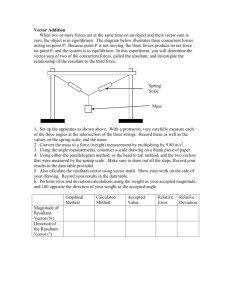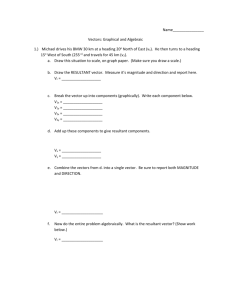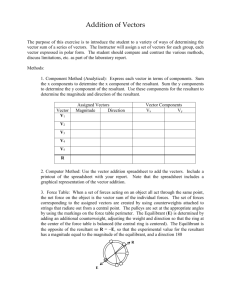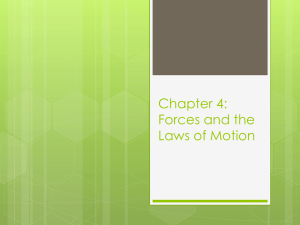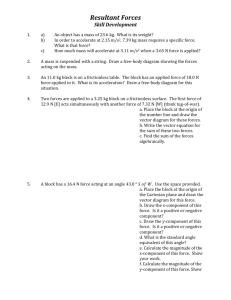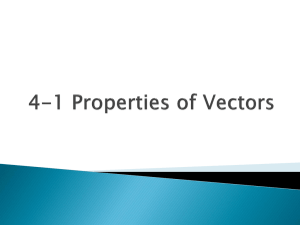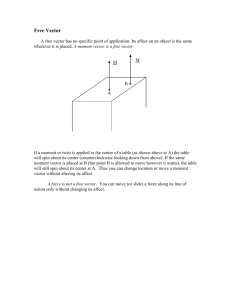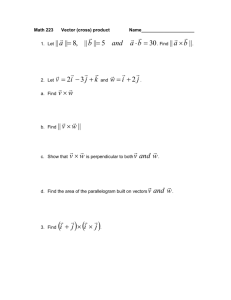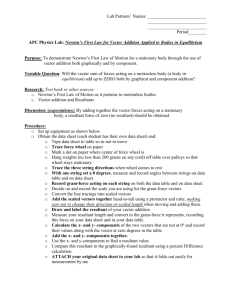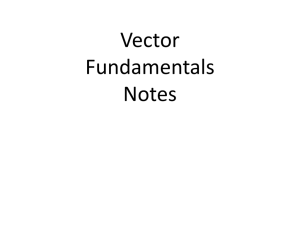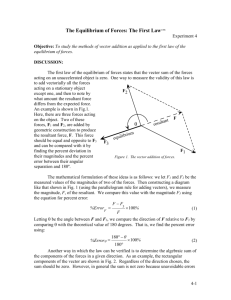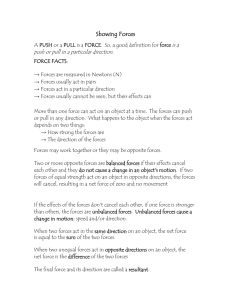Vector Components
advertisement
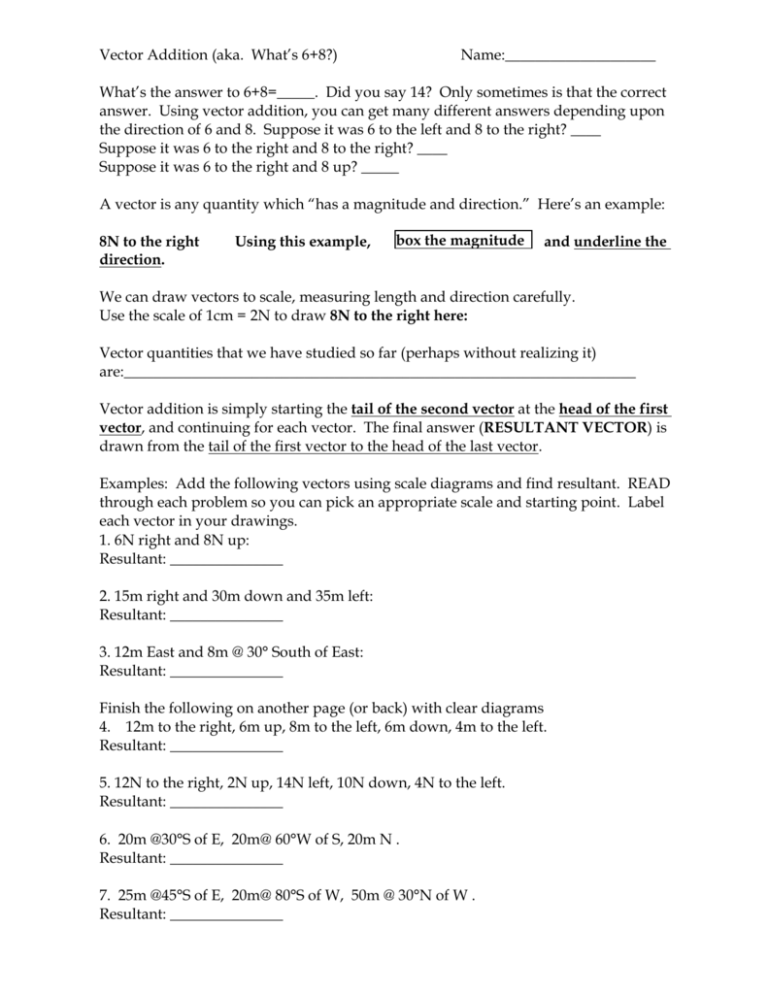
Vector Addition (aka. What’s 6+8?) Name:____________________ What’s the answer to 6+8=_____. Did you say 14? Only sometimes is that the correct answer. Using vector addition, you can get many different answers depending upon the direction of 6 and 8. Suppose it was 6 to the left and 8 to the right? ____ Suppose it was 6 to the right and 8 to the right? ____ Suppose it was 6 to the right and 8 up? _____ A vector is any quantity which “has a magnitude and direction.” Here’s an example: 8N to the right direction. Using this example, box the magnitude and underline the We can draw vectors to scale, measuring length and direction carefully. Use the scale of 1cm = 2N to draw 8N to the right here: Vector quantities that we have studied so far (perhaps without realizing it) are:____________________________________________________________________ Vector addition is simply starting the tail of the second vector at the head of the first vector, and continuing for each vector. The final answer (RESULTANT VECTOR) is drawn from the tail of the first vector to the head of the last vector. Examples: Add the following vectors using scale diagrams and find resultant. READ through each problem so you can pick an appropriate scale and starting point. Label each vector in your drawings. 1. 6N right and 8N up: Resultant: _______________ 2. 15m right and 30m down and 35m left: Resultant: _______________ 3. 12m East and 8m @ 30° South of East: Resultant: _______________ Finish the following on another page (or back) with clear diagrams 4. 12m to the right, 6m up, 8m to the left, 6m down, 4m to the left. Resultant: _______________ 5. 12N to the right, 2N up, 14N left, 10N down, 4N to the left. Resultant: _______________ 6. 20m @30°S of E, 20m@ 60°W of S, 20m N . Resultant: _______________ 7. 25m @45°S of E, 20m@ 80°S of W, 50m @ 30°N of W . Resultant: _______________
